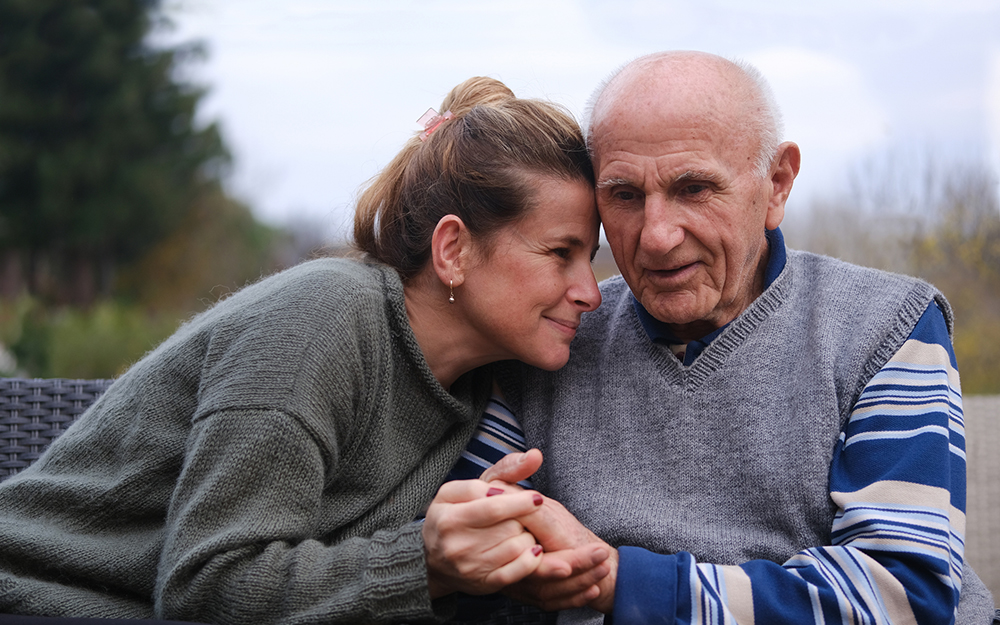The Comprehensive Cognitive Test
Date
July 26, 2024

Date
July 19, 2024
Credits
Medical providers featured in this article

In Brief
{{cta-block}}
Absentmindedness—such as misplacing glasses or forgetting the way home—can seem to appear overnight. Yet the underlying causes of dementia often develop slowly, even over decades.
Well before you notice big changes to your memory or thinking abilities—or those of someone you love—a neuropsychological assessment can detect subtle brain shifts. This thorough examination can help distinguish normal cognitive changes that occur with age from the early beginnings of disease, defining a road map for care to maintain memory and slow disease progression.
“It’s always better to intervene early,” said Cedars-Sinai neuropsychologist Mitzi Gonzales, PhD, who oversees translational research at the Jona Goldrich Center for Alzheimer’s and Memory Disorders. “As with many neurological disorders, time is of the essence.”
{{providers}}
An In-Depth Look Into the Mind
If you notice repeated forgetfulness or confusion in yourself or a relative, visit your primary care doctor. Clinicians can conduct a brief screening and refer individuals with concerning symptoms to neuropsychology specialists or neurologists for further evaluation.
Experts encourage every patient undergoing neuropsychological testing to bring a close family member or friend with them to the appointment, especially those who are around the patient every day. Their support and insights into a patient’s state of mind can help the medical team make the most of the assessment.
On exam day, clinical neuropsychologists will begin by considering the full range of circumstances that can affect the patient’s thinking, such as sleep quality and duration, stress, and mood (for example, grief after a spouse’s death). They also take a comprehensive history of the patient’s concerns, education and upbringing to determine a general baseline of what is normal for the patient.
Next, they test the patient on cognitive areas, including attention, behavior, memory, speech and executive function (skills such as time management, planning and organization).
The test measures the patient’s ability to follow and switch topics, remember new information and words, and make sense of their surroundings. Neuropsychologists revisit the same themes multiple times to spot consistent strengths and weaknesses, Gonzales noted.
“Just like you’re supposed to have your cholesterol or blood sugar checked or get a colonoscopy, people don’t know that they should be monitoring their memory."
These evaluators use large national datasets of healthy results to compare the patient with others of a similar age and education level. They then compile a detailed guide of the patient’s scores, what they mean and suggested next steps.
Cedars-Sinai neurologist Sarah Kremen, MD, who directs the center’s Neurobehavior Program, said that stigma and a lack of understanding keep many people from addressing cognitive issues. But she encouraged patients to not be embarrassed or ashamed of a routine health screening.
“Just like you’re supposed to have your cholesterol or blood sugar checked or get a colonoscopy, people don’t know that they should be monitoring their memory,” she said.
The Need for Early Intervention
Neuropsychological evaluations are nearly 90% effective in distinguishing Alzheimer’s disease from different brain and psychiatric conditions such as depression, which are not dementia but often mimic symptoms in older adults.
The evaluations are paired with brain imaging for signs of atrophy, which can indicate Alzheimer’s disease or other types of dementia, and vascular disease. Behavioral neurologists run these scans, along with medical and general neurological exams, and compile the data, working in tandem with neuropsychologists to diagnose and study the mind.
In addition to diagnosing memory and nervous system disorders (such as Parkinson’s disease), neuropsychological assessments can objectively track their advancement, allowing doctors to closely observe effects and notice hidden differences that are unique to each person.
This process of understanding the extent of disease can shepherd patients and their loved ones through tough milestone decisions about a patient’s independence and need for support. For example, the report might suggest a driving test, full-time caregiver, or education in strategies for working around cognitive decline that emphasize routine and reminders.
Gonzales encourages patients to get evaluated soon after noticing mild memory changes.
While there is still no cure for Alzheimer’s, newly approved medications for managing the condition work best when started early. Exciting medical and technological advances could revolutionize dementia care, even potentially preventing the condition in high-risk people. Quick intervention can also allow time to plan for inevitable care decisions and make the patient’s wishes known before their abilities change.
Experts emphasized that you can care for your mind at every stage.
“There’s always something we can do,” Kremen said.






